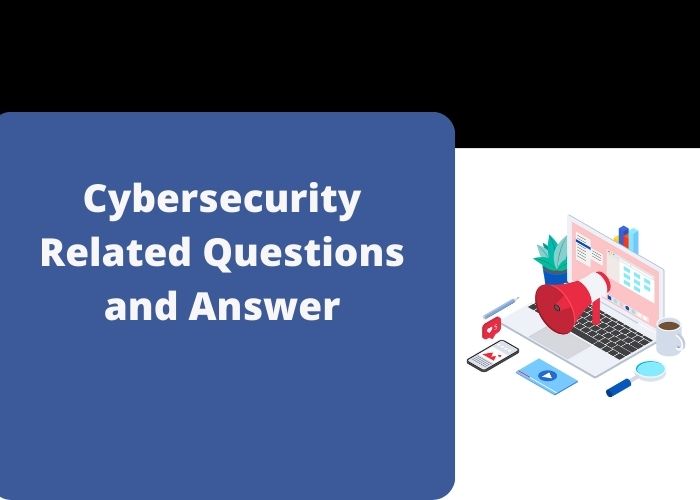Q1: What is the most important security measure a startup should take?
A1: The most important security measure a startup should take is to establish a robust security strategy that outlines the steps to protect their data, systems, and networks. This should include encryption, access control, two-factor authentication, and other best practices.
Q2: What are the risks associated with cybersecurity in startups?
A2: The risks associated with cybersecurity in startups include data breaches, malicious attacks, and phishing attempts. These can lead to financial losses, reputation damage, and potential legal repercussions.
Q3: What type of security testing should startups conduct?
A3: Startups should conduct both internal and external security testing. Internal security testing includes vulnerability scans, penetration tests, and code reviews. External security testing includes testing the external exposure of the company’s applications and systems to check for any potential threats.
Q4: What are the most common cybersecurity threats facing startups?
A4: The most common cybersecurity threats facing startups include phishing attempts, malicious software, data breaches, and ransomware.
Q5: How can startups prevent data breaches?
A5: Startups can prevent data breaches by implementing robust security strategies that include encryption, two-factor authentication, access control, and other best practices. They should also regularly test their security systems and update them as needed.
Q6: How can startups protect themselves from phishing attacks?
A6: Startups can protect themselves from phishing attacks by training employees on phishing awareness, using two-factor authentication, and deploying email filtering tools.
Q7: What is the most effective way for startups to protect their data?
A7: The most effective way for startups to protect their data is to implement encryption. This ensures that any data that is stored or transmitted is unreadable by unauthorized parties.
Q8: What is the best way for startups to secure their networks?
A8: The best way for startups to secure their networks is to deploy a firewall and a Security Information and Event Management (SIEM) system. The firewall will protect against external threats while the SIEM system will monitor and analyze user activity to detect any potential malicious activity.
Q9: What is the best way for startups to secure their systems?
A9: The best way for startups to secure their systems is to deploy a system patching solution that will automatically patch any security vulnerabilities on the system. They should also implement two-factor authentication and regularly audit their systems for any potential threats.
Q10: What measures should startups take to protect their data in the cloud?
A10: Startups should take measures to protect their data in the cloud by encrypting data both in transit and at rest, using access control and two-factor authentication, and setting up cloud-specific security policies.
Q11: How can startups ensure data privacy and security?
A11: Startups can ensure data privacy and security by establishing a robust security strategy, encrypting data both in transit and at rest, deploying a firewall and SIEM system, and implementing access control and two-factor authentication.
Q12: What is the best way for startups to detect and mitigate cyber risks?
A12: The best way for startups to detect and mitigate cyber risks is to deploy a Security Information and Event Management (SIEM) system that will monitor user activity and alert them to any potential threats. They should also regularly audit their systems and update their security measures as needed.
Q13: What is the role of a Chief Information Security Officer (CISO) in a startup?
A13: The role of a Chief Information Security Officer (CISO) in a startup is to develop and implement a security strategy and ensure that the company’s systems, networks, and data are secure. The CISO is also responsible for monitoring user activity and responding to any security incidents.
Q14: What is the best way for startups to manage cybersecurity threats?
A14: The best way for startups to manage cybersecurity threats is to deploy a Security Information and Event Management (SIEM) system that will monitor user activity and alert them to any potential threats. They should also regularly audit their systems and update their security measures as needed.
Q15: What is the difference between a vulnerability scan and a penetration test?
A15: A vulnerability scan is an automated process that looks for known security vulnerabilities in a system. A penetration test, on the other hand, is a manual process that simulates a real-world attack on the system and looks for weaknesses that could be exploited.
Q16: What are the most important cyber security tools for startups?
A16: The most important cyber security tools for startups include a firewall, a Security Information and Event Management (SIEM) system, a vulnerability scanner, an anti-malware solution, and an email filtering system.
Q17: What is the best way for startups to ensure compliance with security regulations?
A17: The best way for startups to ensure compliance with security regulations is to establish a robust security strategy that outlines the steps to protect their data, systems, and networks. This should include encryption, access control, two-factor authentication, and other best practices. They should also regularly audit their systems and update their security measures as needed.
Q18: What is the best way for startups to secure mobile devices?
A18: The best way for startups to secure mobile devices is to use a mobile device management solution that will provide visibility and control over the devices. This will allow the startup to deploy security policies and restrict access to sensitive data.
Q19: What is the best way for startups to protect their systems from malicious software?
A19: The best way for startups to protect their systems from malicious software is to deploy an anti-malware solution that will detect and remove malicious software from the system. They should also regularly update their systems and applications to ensure the latest security patches are installed.
Q20: What is the best way for startups to protect their websites from malicious attacks?
A20: The best way for startups to protect their websites from malicious attacks is to deploy a web application firewall that will detect and block malicious traffic and attacks. They should also regularly audit their websites and update their security measures as needed
Q21: What is the best way for startups to protect their systems from data breaches?
A21: The best way for startups to protect their systems from data breaches is to deploy robust security measures such as encryption, access control, two-factor authentication, and regular security audits.
Q22: How can startups protect themselves from social engineering attacks?
A22: Startups can protect themselves from social engineering attacks by training employees on security awareness, regularly monitoring user activity, and implementing access control measures.
Q23: What are the benefits of cybersecurity automation for startups?
A23: The benefits of cybersecurity automation for startups include increased efficiency, reduced costs, improved security posture, and better visibility into the security posture of the company.
Q24: What are the most important security principles for startups?
A24: The most important security principles for startups include confidentiality, integrity, availability, authentication, authorization, and non-repudiation.
Q25: What are the best practices for startups to secure their systems?
A25: The best practices for startups to secure their systems include deploying a firewall, encrypting data both in transit and at rest, implementing access control and two-factor authentication, and regularly auditing their systems.
Q26: How can startups secure their cloud environments?
A26: Startups can secure their cloud environments by deploying a cloud access security broker (CASB) that will monitor user activity in the cloud and alert them to any potential threats. They should also establish cloud-specific security policies and regularly audit their systems.
Q27: What is the most important security measure startups should take to protect their data?
A27: The most important security measure startups should take to protect their data is to encrypt it both in transit and at rest. This ensures that any data that is stored or transmitted is unreadable by unauthorized parties.
Q28: What is the best way for startups to protect against insider threats?
A28: The best way for startups to protect against insider threats is to implement access control measures such as two-factor authentication and role-based access control. They should also regularly monitor user activity and audit their systems for any potential threats.
Q29: What are the benefits of having an incident response plan for startups?
A29: The benefits of having an incident response plan for startups include being prepared for potential security incidents, providing a clear and structured approach to dealing with incidents, and limiting the damage to the company’s systems and data.
Q30: What is the best way for startups to protect their networks from malicious traffic?
A30: The best way for startups to protect their networks from malicious traffic is to deploy a firewall that will detect and block malicious traffic and attacks. They should also regularly audit their networks and update their security measures as needed.




